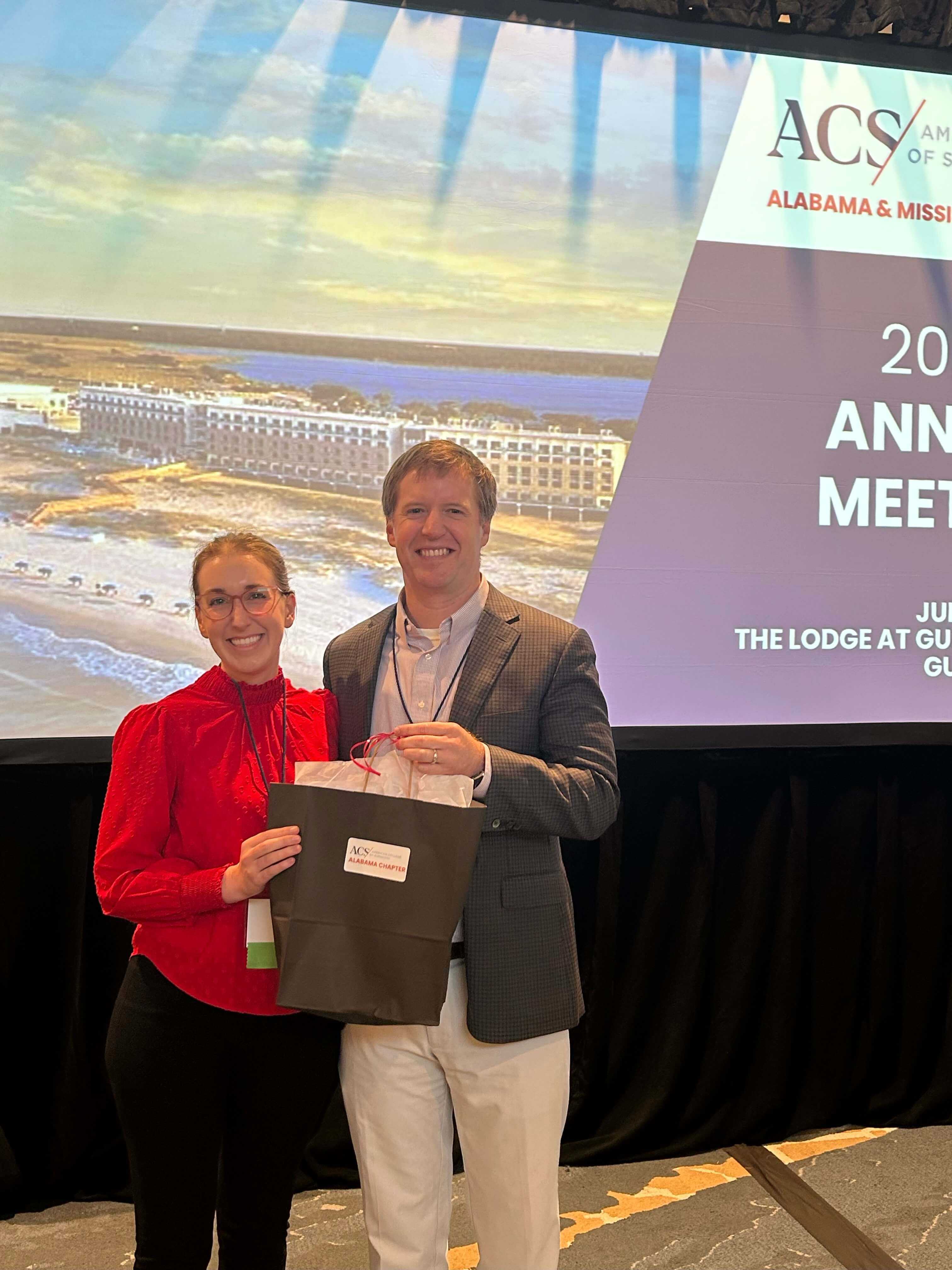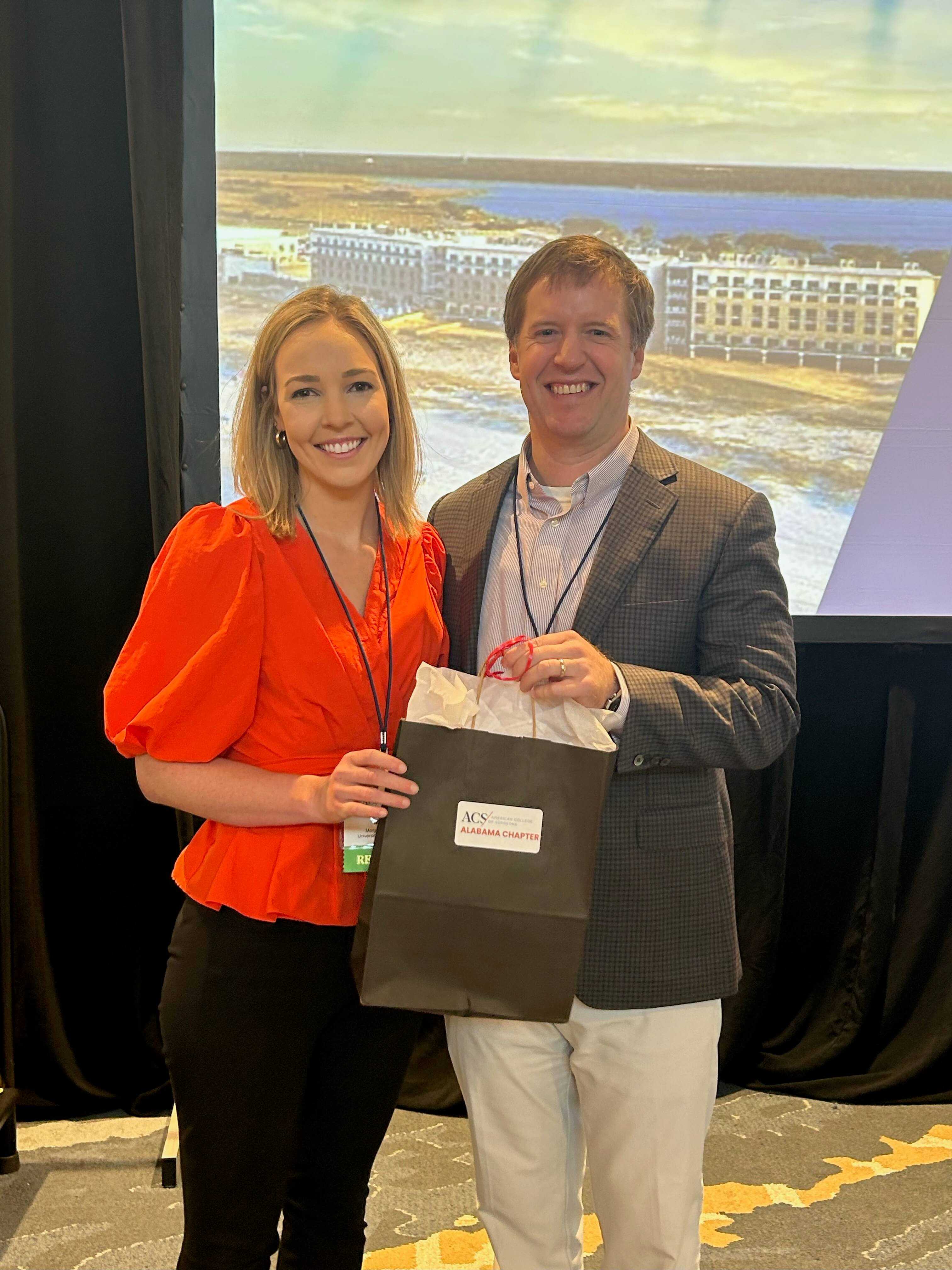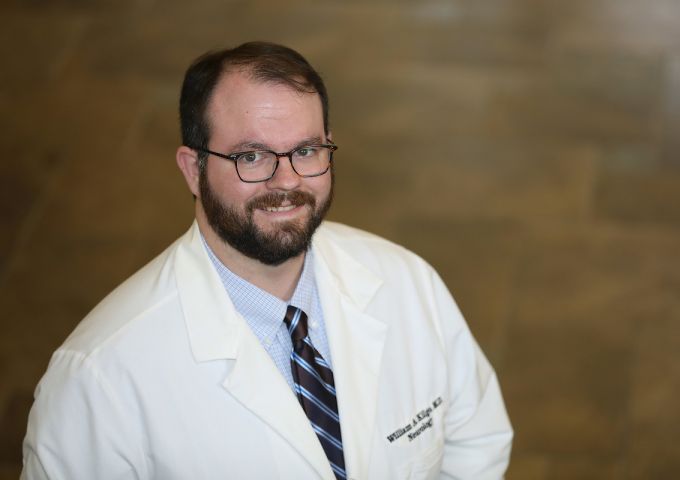
Liles installed as state American College of Surgeons president at annual conference
The Alabama chapter of the American College of Surgeons held its annual conference jointly with the Mississippi chapter and featured speakers from across the region, including surgery faculty from the Whiddon College of Medicine.
By Carol McPhail
[email protected]
USA Health surgical oncologist Spencer Liles, M.D., FACS, was installed as president of the Alabama chapter of the American College of Surgeons at the organization’s annual conference held July 25-27 in Gulf Shores.
Liles, who also serves as an associate professor of surgery at the Frederick P. Whiddon College of Medicine, replaces USA Health colorectal surgeon Lee M. Grimm, Jr., M.D., FACS, FASCRS, who concluded his one-year term as state chapter president. Grimm is a professor of surgery and director of the surgery residency program at the Whiddon College of Medicine.
“My goals for this year are to increase chapter enrollment and attendance at our annual chapter conference by hopefully providing sessions on coding and billing, and rural trauma care,” Liles said. “Additionally, we plan to review and update our chapter policies to align them with the new American Board of Surgery (ABS) standards.”
The American Board of Surgery announced in July it would implement a new Code of Ethics and Professionalism to reduce administrative burden by streamlining professional reporting.
The annual conference was held jointly with the Mississippi state chapter of the ACS and featured speakers from across the region, including surgery faculty from the Whiddon College of Medicine. Also at the meeting, two surgery residents from USA Health won prizes in the general surgery resident paper competition.

Megan McCaul, M.D., a fifth-year general surgery resident, won a prize for her presentation, “Robotic-assisted Heller Myotomy Improves Inter-operative and Post-operative Outcomes Compared to Laparoscopic Procedure.”
“Our institution had been performing laparoscopic Heller myotomy for certain diseases of the lower esophagus,” McCaul said. A Heller myotomy involves the cutting of muscles of the lower esophageal sphincter to allow food and liquids to pass into the stomach.
“When we switched to a robotic platform, we noticed an improvement in patient outcomes,” she said. “Our goal was to study our patient outcomes for robotic vs. traditional laparoscopy, looking at several factors including the long-term symptom relief for our patients.”

Morgan Roberts, M.D., a fourth-year general surgery resident, was awarded a prize for her presentation, “Outcomes and Recurrence Rates in Stage IIIA Cutaneous Melanoma: Is Adjuvant Immunotherapy Worth It?”
Roberts said that people with Stage IIIA melanoma, the most dangerous type of skin cancer, comprise a unique subset among melanoma patients because they tend to have favorable long-term outcomes despite evidence that the cancer has spread to the lymph nodes.
“We performed a study evaluating an international melanoma database to determine the need for adjuvant immunotherapy in this specific group of patients, given the severe adverse event rate of 20% associated with it,” she said. Adjuvant immunotherapy is given after the initial cancer treatment, such as surgery, to reduce the risk of recurrence.
“We found a very low recurrence rate (12%) of melanoma in patients not receiving immunotherapy,” she said. "Furthermore, recurrence-free survival was not affected by the use of immunotherapy, supporting the idea that adjuvant immunotherapy can be withheld in patients with Stage IIIA melanoma.”




